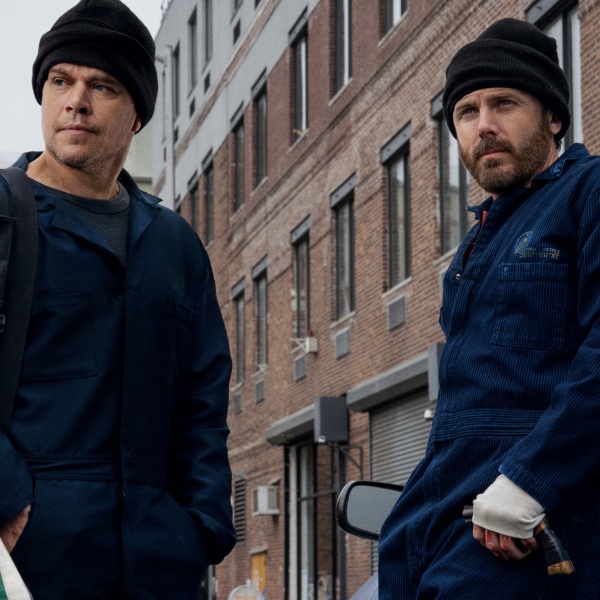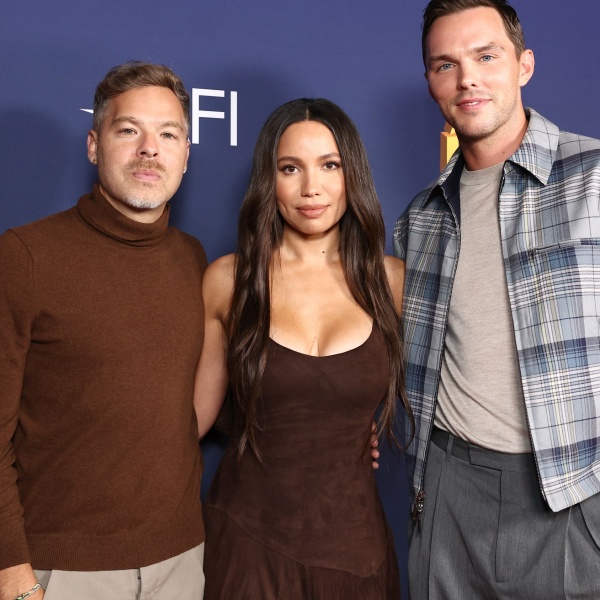The Director Of Epics Like “Glory” & “Blood Diamond” Also Talks His Gear Shift With “Love And Other Drugs”

Director Edward Zwick is known as a big-screen director of epics like “The Last Samurai” and “Glory.” But on television, he’s produced such character-based work as “My So-Called Life” and “thirtysomething.” So it shouldn’t be too much of a surprise that Zwick would take a right turn with a romantic comedy. In “Love And Other Drugs,” he tackles a budding, often destructive relationship set against the peculiar world of pharmaceutical drugs: it’s a long way from “Blood Diamond.”
We sat down to talk with Zwick about his new film, trying to get out of his comfort zone, and how disinterested in the Oscars he’s become.
What attracted you to the material, and how were you able to manage the balance between comedy and drama?
It really seemed to be an opportunity to talk about love in a realistic, different way than some of the more conventional romantic comedies of the time. And in my experience of life, things are always very serious, but seriously funny. We wanted to give some interpretation of this experience. We wanted it to be both brave and full of life. People who have any kind of illness use humor as a type of coping. We felt that we should try the same thing.

Anne Hathaway apparently was hesitant to sign on at first because of concerns she had with the material – concerns smoothed out by her contribution to the script. What did she bring to the project?
[Anne] had great input. She’s such a smart girl. She really wanted to get inside this character. The initial drafts sort of objectified her a little bit. And the idea of really trying to delve into how this would affect her sexuality is a very provocative idea of how to tell a love story. These two people who are really uninterested and resistant to falling in love can’t help but give themselves over to it.
The movie is based on a nonfiction novel, and the character of Maggie (Hathaway) does not feature in the story. Where did you get the idea for the character?
The source is a nonfiction account of the introduction of Viagra. And really just that. We really departed from that. We used that as a contextual universe in which a story like this would be set. [Maggie’s] an extraordinary lifeforce, and we wondered what it would be like for a woman with this sort of energy and spirit to confront what she has to confront. It struck us as a very emotional opportunity to talk about somebody who is not yet reconciled to what her life is going to be until she arrives at that acceptance. But at the same time she comes to accept the possibility of love.
You’ve worked with such a broad canvas in films with these epic stories, but your television work has always been intimate and character-based. What took you so long to bring that aesthetic to films?
All along, while I was working on those larger films, we would be having these television shows and I’d be working on them, writing and directing them in between films. So it had been a few years since we had done something like this and I wanted to go back to that kind of voice. People make the assumption that you’re only interested in one thing based on the most recent thing you’ve done. But some directors can be pretty promiscuous about their tastes, and that’s how I want to challenge myself. And this represented a very strong impulse on my part to work with a voice that I hadn’t used recently.
You’ve achieved a lot of success with your larger films. Is there any interest in sequels or perhaps taking a chance to revisit those characters and settings?
No, I tend to think that when I’ve done it, I’ve worn it out a little bit. There’s only a certain number of movies I’m going to get made, and it’s important to me that they each be original somehow. I really look forward to that opportunity to be a student and discover things. That keeps it interesting for me. And I sometimes get easily bored and there are still some things I wanna talk about instead of repeating something.
Your films are always considered potential Oscar contenders long before the films comes out. How does it feel to have your film mentioned in such high regard, and discussed in reference to Academy Awards, by people who haven’t even seen it yet?
It’s a thing that people talk about more in the media more than we do. We’re so busy trying to do the work, and the work is hard but gratifying. It’s this odd circumstance where people are trying to pit us against each other by saying one piece is better than another piece of work. It’s been imposed on us by a culture that’s competitive and wants to say what is the best, what is the winner, what is the most. And I think it kind of antithetical to the health and sanity of trying to be an artist in this country.
“Love And Other Drugs” hits theaters tomorrow, Wednesday, November 24. Read our early review from CMJ.


